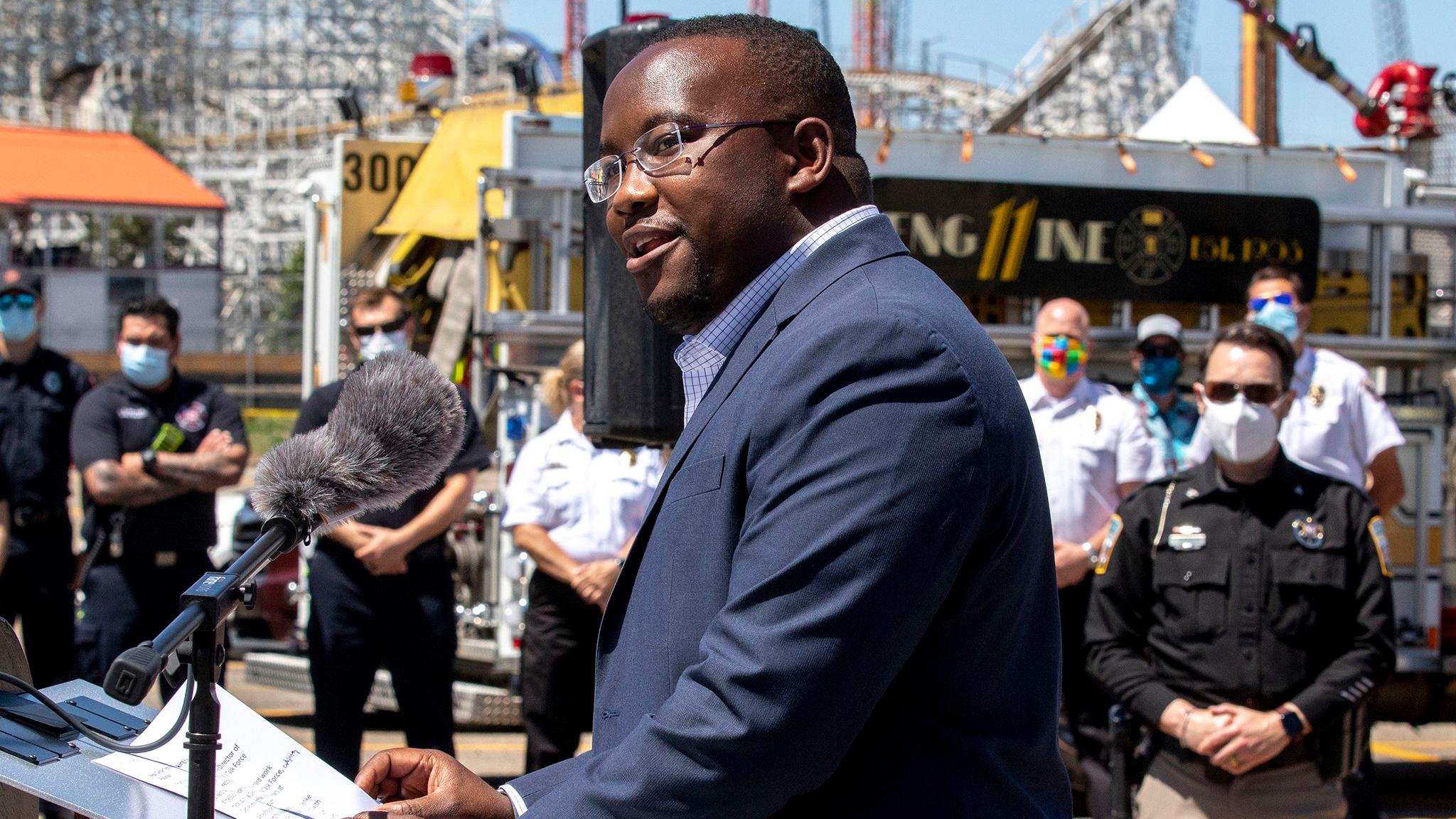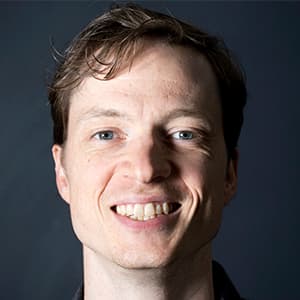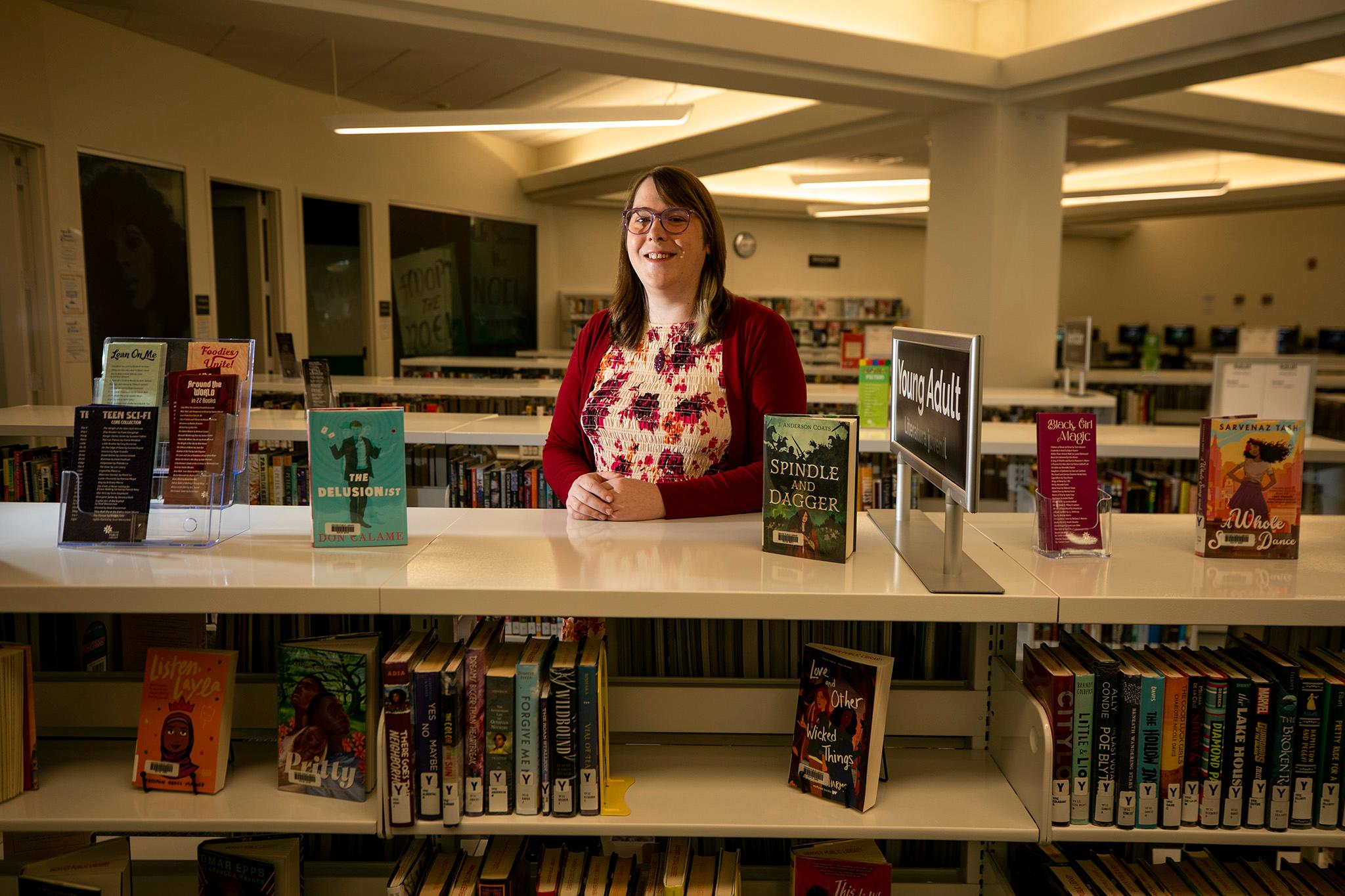OK, so maybe Murphy Robinson got a running start when Mayor Michael Hancock tapped him to lead Denver's Department of Public Safety. He officially took over the bureaucracy that heads the police, sheriff and fire departments last week after holding the post on an interim basis for four months.
Robinson's local roots might also give him a head start. He grew up here and has been one of Hancock's right-hand men for some time now -- a stark difference from his predecessor Troy Riggs, who left in January for his ninth job in 10 years after less than two years in Denver.
Robinson inherits a department that has had no permanent sheriff since last October when Patrick Firman resigned from the post, leaving behind a rocky tenure that included a multi-million-dollar settlement in the death of Michael Marshall among other stains, including video of a woman giving birth in a jail cell with no medical attention.
Robinson's new gig also comes with a fire department that hasn't had a permanent chief since March, when Eric Tade stepped down after apparently making jokes about sex toys at an annual ball. Tade oversaw a department with a history of intoxicated driving and a more niche crime: breaking into swingers clubs.
Aside from helping his underlings make better decisions, Robinson wants to help the general public make better decisions. He's interested in reforms to stop generational incarceration and doesn't want poverty to dictate whether someone gets consecutive round-trip tickets through the criminal justice system.
Robinson spoke with Denverite on how he will accomplish some of those things. Questions and answers are edited for length and clarity.
What's it like taking the helm of Denver's public safety department in the middle of a pandemic that's threatening everyone's safety?
It's an honor to be able to step into and lead a workforce who is on the front lines 24-7 and actually seeing this pandemic for themselves every day, every hour. I'm humbled by it. But I would also say that it's a challenge because not only do we have to make sure that our folks are deployed in a safe manner and have the equipment and things that they need to help our community get through this, but also we're in a fiscal crisis. And so we are continually looking at how we can deploy our public safety staff in a manner that's efficient and effective for the community while looking at the crisis that we're in.
One thing that happens in recessions is collective bargaining agreements sometimes get reopened and shuffled around to avoid layoffs and things like that. Is that something you'd be interested in pursuing?
Absolutely. I've been in constant conversations with our collective bargaining teams across the board and I will tell you all of the unions have met with me. I've been talking to them since the beginning of this COVID crisis. We're working together to figure out what's best for not only our employees, but making sure that they can provide the citizens with the services that they provide every day.
You obviously have the mayor's trust. Who else's trust do you need to gain? How will you gain the trust of advocates for criminal justice reform?
I am one that believes in relationships. Relationships guide us through the good times and the bad. And I believe that the trust needs to be earned, first and foremost, by the citizens of Denver -- before the mayor even. I'm a native to Denver. And so it's very important to me that the people that I serve trust the way that I'm leading and hopefully see the direction that I'm going.
With that said, community groups, faith groups, advocates for different areas, whether it be criminal justice reform or whether it be the Fraternal Order of Police. I would say the other key set of people that I want to work alongside is city council. City council is such a large asset for me and has been since I've been in this role. I believe that they can help me move the needle in a lot of different areas and help me see the landmines that are in front of me.
How do you gain that trust?
If we can be honest about what's happening, if we can be transparent about what we do and then seek their ideas and guidance. I am not a person who can do this by myself and neither is anyone else on the leadership team. And so I love to hear the perspectives of others that will help guide me in the decisions that I make. But also I would also ask that the citizens, as well as the city council and advocates of different areas, guide me to help me get a solution that works for most because most solutions don't work for all.
Denver is without a permanent sheriff right now. How's the search going and when do you expect to name a new one?
The search is going well. The committee is made up of community members and they have asked us to get some more applicants so that we can give the mayor a good, diverse pool of applicants. We are in the midst of doing that, as well as really looking at how we can add more information to the job description that really touches on that community field. Everything I just talked about, about really listening to the community members, is exactly what I'm implementing with the sheriff search. They have asked me to really consider changing that job description to add more community outreach. And that's exactly what we're doing. I'm hoping that we can put those candidates up to the mayor for his decision within the next couple of weeks.
Denver's also without a permanent fire chief right now after he made sexually explicit comments. The raunchy behavior among some in the fire department has been a theme over the last several years. How do you plan to change the culture of that department?
We have a lot of dedicated individuals in that department that do a lot of good work every day. The incidents that have happened were unfortunate and will not be tolerated. And I've made it very clear to all of the fire department, to include the leadership, that that type of behavior will not ever, under my leadership, be tolerated.
But the culture changes is starting to happen now. I'm encouraged with what I see happening in regard to the implementation tactics I've asked to be put in place, which are not only to include more cultural diversity, but putting things in place such as making sure that no alcohol can be consumed when in uniform anymore. That's something that I did, I think it was my first day on the job.
How is that fire chief hiring process going?
We are about to launch the search after we get done with the sheriff search. I can't, unfortunately, do both at the same time because of COVID. It will be a similar situation to (to the sheriff's process). It's not going to be the exact same, but there will be a similar group made up of community members, stakeholders and leaders who will help hire the fire chief.
Your predecessor, Troy Riggs, was here pretty briefly -- less than two years -- for the job he was hired to do. He wanted to institute a sweeping, philosophical change in policing that accounts for things like food insecurity and other indicators of risk. Do you feel like you're going to pick up where he left off or do you plan on making your own footprint?
It's a hybrid of both of those things. I would say I think Troy Riggs has a very tough job and I think he did an excellent job with the cards he was dealt, and I believe that he implemented partnerships in the community like We Don't Waste, Mile High United Way and Denver Food Rescue. Those types of partnerships are lasting partnerships that will last far beyond him and myself. However, I do believe that we can take it to the next level and really utilize those partnerships, as well as really understand how we want to implement not only criminal justice reform, but making sure that our citizens have what they need to succeed before they get into crisis.
The thing that I have to deal with that Troy did not, is that I am managing during a pandemic crisis. So the hand I've been dealt is really meeting people at a time where they have seen probably the most frustration, the most economic impact, social impact that they've ever seen in their lives. And so I think that is an opportunity for me to step in as their public safety director and say, how can I help and really identify ways for us to bridge that gap.
Criminal justice reform is a huge passion of mine and always has been. And I want to make sure that we're implementing changes that reduce consequences of incarceration for individuals and families in the community that will affect generations. I know what it's like to have community members that go to jail because of decisions that were made because they were trying to better themselves but they didn't have any other options. I want to curb that. I want to help folks make better decisions.
Do you foresee any changes to the sweeps of unhoused people that can be perceived as pitting police officers against the very community they are meant to help?
A police officer's job is very difficult because sometimes you have to bridge that gap of enforcing an order that comes from myself or the mayor with the efforts that you're doing with community policing. These cleanups are a good example of that. I am in constant conversation with the mayor's office to figure out how we better address some of the issues when it comes to encampments and enforcement of these encampments without putting the police and our public safety personnel in a position that further triggers the people that are there.
We're going to have to continue to do something. But what we do and how we do it is always a constant conversation. I have meetings three times a week on this very subject.
It can take one bad incident to change the face of an organization. In light George Floyd's death in Minneapolis, which is just the latest in a string of deaths of black men while in police custody, how do you plan to work with activists who have pushed for more accountability from officers?
What happened in Minneapolis was unfortunate and enraging to me. If, Lord forbid, something like that happened in the city and county of Denver, I owe it to the citizens of Denver and I owe it to the police department to act swiftly and appropriately for anything of that magnitude. But I will tell you, I hold the Denver Police Department and the Sheriff Department in high regard. I believe we have some of the best officers in the country. And so should something like that happen, they know that my expectation is that I will hold them accountable. I hope to work with Chief Paul Pazen and all of our team to make sure that we can mitigate things like that happening so that they know it is an expectation of them to treat folks how they would want their family members to be treated.
How do you do that?
We do that through training. We do that through conversations. We do that through policy. But first and foremost, it comes down to the type of people that you hire. While I am not afraid to hold people accountable, my hope is that I won't have to do that, but if I need to, I will.
I get on a call every other week with the American Civil Liberties Union. I talk with activists across the city all the time. And that's because these are people I grew up with. These are people I know or have learned about through my professional environment. I plan on utilizing those relationships as partnerships. An activist is simply someone who has an interest in making sure that things are equal and are being done appropriately. And so I welcome those conversations.
It must be helpful that you grew up in Denver.
Absolutely. I'm humbled by it and I feel a level of responsibility that I'm not sure I would if I came from somewhere else. It gives me not only a perspective, but it also gives me an opportunity to bridge the gap in a way that I hope hasn't been bridged before.









